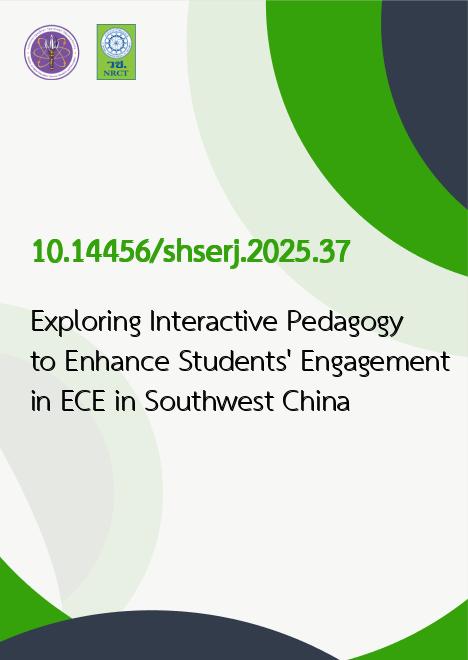
|
Exploring Interactive Pedagogy to Enhance Students' Engagement in ECE in Southwest China |
|---|---|
| รหัสดีโอไอ | |
| Creator | Lu Zhang |
| Title | Exploring Interactive Pedagogy to Enhance Students' Engagement in ECE in Southwest China |
| Publisher | Assumption University Press |
| Publication Year | 2568 |
| Journal Title | The Scholar: Human Sciences |
| Journal Vol. | 17 |
| Journal No. | 2 |
| Page no. | 67-79 |
| Keyword | Learner-Content Interaction, Learner-Instructor Interaction, Learner-Learner Interaction, Students' Emotional, Behavioural and Cognitive Engagement, Early Childhood Education |
| URL Website | https://assumptionjournal.au.edu/index.php/Scholar/article/view/7987 |
| Website title | https://assumptionjournal.au.edu/index.php/Scholar |
| ISSN | 2586-9388 |
| Abstract | Purpose: This study is to verify the significance between learner-content interaction, learner-instructor interaction, learner-learner interaction and students' emotional, behavioural, and cognitive engagement in class. Research design, data and methodology: Index of Item-Objective Congruence (IOC) rating and a pilot test (n=30) were used for validity and reliability. 280 responses from ECE in an application-oriented private university in southwest China were analyzed by the multiple linear regression (MLR) to verify the significant relationship between variables and 6 teachers and 12 students were interviewed for offering suggestions to intervention process. Following this, a group of 40 students underwent a 12-week Intervention Design and Implementation (IDI). Afterwards, the results were compared using paired samples t-test before and after the intervention and the same 6 students were interviewed for feedback. Results: The results of MLR revealed that there were significant influences between learner-content interaction, learner-learner interaction and students' emotional, behavioural and cognitive engagement, but not learner-instructor interaction. In addition, paired samples t-test results indicated significant changes in learner-content interaction, learner-learner interaction, and students' emotional, behavioural and cognitive engagement before and after the intervention. Conclusions: Although benefits and challenges coexist, interactive pedagogy is worth promoting as it enhances students' learning effectiveness, emotional experiences, and overall development. |
